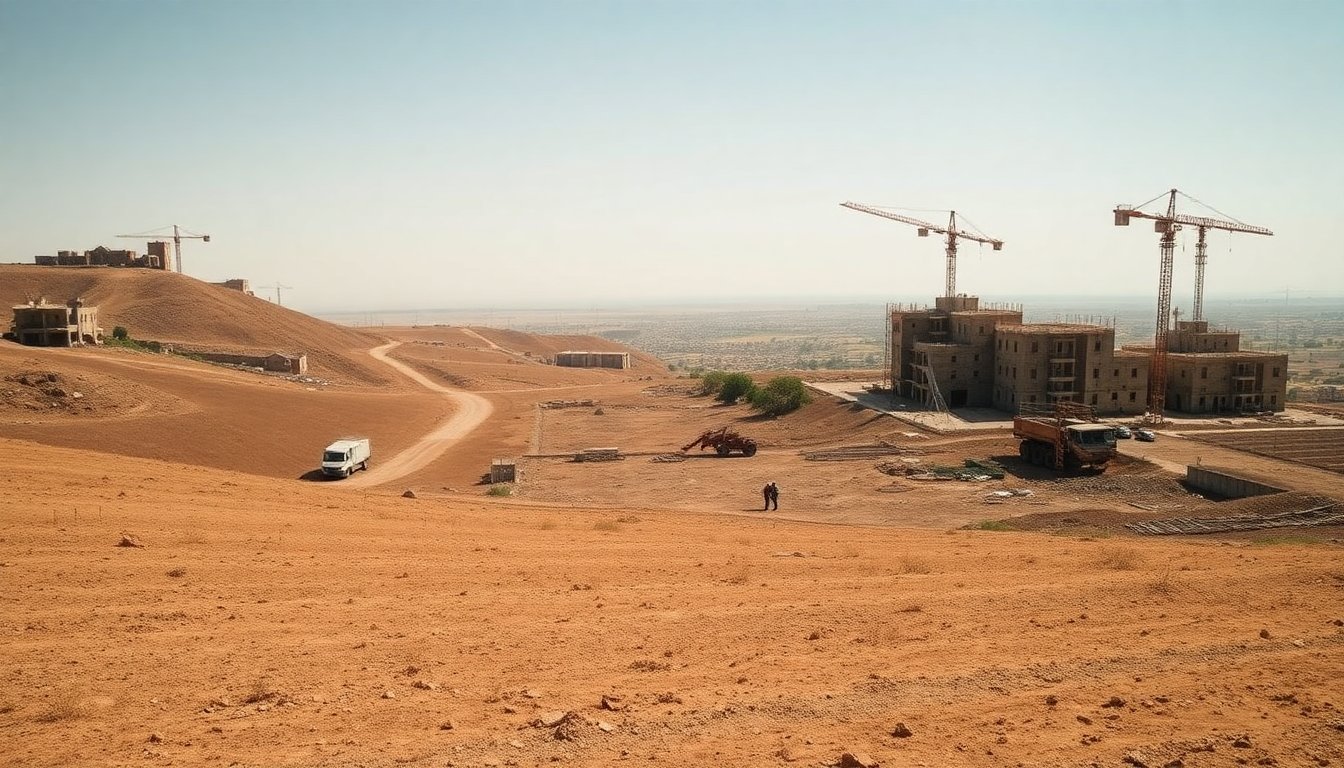Table of Contents
The recent decision by Israeli Prime Minister Benjamin Netanyahu to advance a controversial settlement expansion plan in the occupied West Bank has reignited debates about the feasibility of a future Palestinian state. This initiative is viewed as a direct threat to Palestinian sovereignty, highlighting the complex dynamics at play in this long-standing conflict. The proposed development will include 3,400 new homes within a strategic area known as E1, which aims to divide the West Bank while connecting various Israeli settlements, complicating peace negotiations further.
Understanding the current landscape of Israeli settlements
The expansion of Israeli settlements in the occupied West Bank has been contentious since the 1967 occupation. International law considers these settlements illegal, yet they continue to proliferate under Israeli governance. Netanyahu’s recent statement at an event in Maale Adumim, where he declared, “We are going to fulfill our promise that there will be no Palestinian state,” signifies a significant policy shift that could effectively erase the prospect of Palestinian statehood.
East Jerusalem, a focal point for Palestinians seeking to establish their capital, is significantly impacted by the E1 development plan. The area’s historical and cultural significance amplifies the stakes involved in this expansion, which threatens to disrupt the territorial continuity essential for a viable state. The implications of such actions extend beyond immediate geography; they affect the broader narrative of peace and coexistence that many nations hope to foster.
The international response and implications for peace
The expansion plan has garnered widespread criticism from various international entities. Nabil Abu Rudeineh, spokesperson for the Palestinian Authority, characterized the move as a step towards chaos in the region, asserting that a Palestinian state with East Jerusalem as its capital is crucial for achieving peace. Recent calls from the United Nations General Assembly for Israel to cease its settlement activities further illustrate the growing discontent among member states regarding Israel’s policies.
In September 2024, over 100 nations supported a resolution demanding Israel’s withdrawal from the West Bank and the cessation of new settlements. This growing international consensus underscores the urgency of addressing the Israeli-Palestinian conflict, especially as more countries recognize the necessity of a two-state solution. Germany’s support of France-led initiatives and commitments from Belgium, France, and Malta to recognize a Palestinian state signal a potential shift in diplomatic engagement that could influence future negotiations.
Future outlook: Challenges and opportunities
The trajectory of Israel’s settlement expansion presents a challenging landscape for any potential peace process. As tensions escalate, particularly with recent violence in Jerusalem and the West Bank, the situation remains precarious. Netanyahu’s administration continues to promote policies that seem to undermine the possibility of a negotiated settlement, further complicating the already fraught relations between Israelis and Palestinians.
However, amidst these challenges, there remains a glimmer of hope for dialogue. The increasing recognition of Palestinian statehood by numerous UN member states, alongside calls for a two-state solution, suggests that the international community is ready to engage more actively in seeking resolution. The road ahead will undoubtedly require concerted efforts from all parties involved, focusing on tangible steps towards peace, stability, and mutual recognition.


